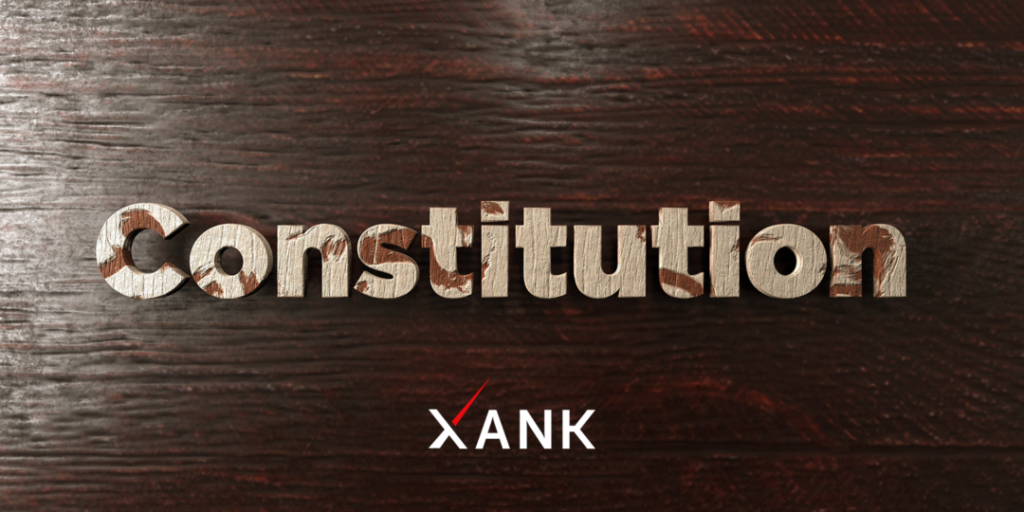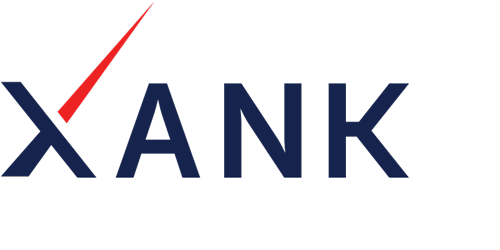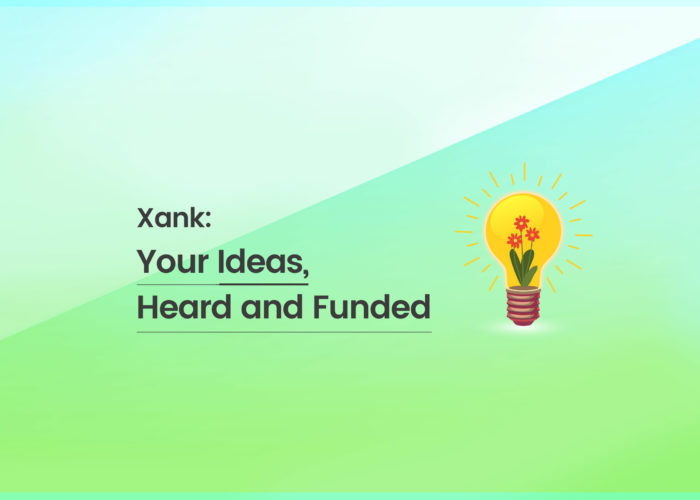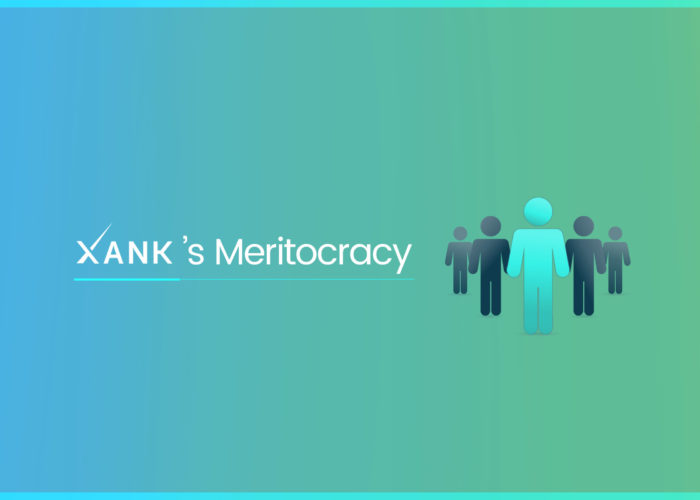In previous posts, we discussed Xank’s meritocratic governance and how consent is necessary when growing a decentralized network that is based on voluntary participation. We also discussed the network’s self-funding Treasury. As the network grows, we anticipate there will be periods when the Treasury will have more funds than needed to cover the operational, development, security, and maintenance needs of the network, resulting in excess funds. So how exactly will excess funds be used? Who gets to decide and in what proportion? In this post, we examine how the Xank Constitution incentivizes the right mix of people to participate and grow the network.

Just as in a well-functioning family or society, once basic needs have been met, excess funds can be used to improve everyone’s well being and provide for the future success of the family or society. The same principle can be applied to decentralized networks based on voluntary participation. With Xank being a decentralized network, it is only appropriate for the network to decide. But how do you get a network to decide in a decentralized way and in a way that benefits the most people and has the most impact? This is a key consideration; if you get this wrong, you can end up with a monoculture that is not diverse in its interests.
Take for instance a monoculture of greed. If you only incentivized greedy people to join your network, a common theme among many cryptocurrencies, your most likely outcome would be a network based on a monoculture of greed — something that also resembles many western liberal democracies. This monoculture can be good at achieving large levels of growth but it usually does so in a way that centralizes wealth and power in a few, leaving most of the network detached and powerless. This simply will not work with voluntary networks in which consent is garnered to achieve a network consensus. Furthermore, monocultures are most prone to single points of failure and the more overarching a principle or ideology, the more it crumbles as it reaches its limits or faces challenges.
To achieve the opposite, for the network’s power to be distributed to the edges of the network, you need to foster a mix of incentives that encourage a diverse range of participants. The resulting culture will be diverse and the interests of the network will be mixed, varied and decentralized. Such a network is less likely to be dominated or overwhelmed by a single idea or ideology; instead, a range of competing ideas and ideologies can emerge to achieve a meritocratic balance. This is all in line with Xank aspirations to scale as a functional network that operates on a global scale. For a network to be useful, it must fund a diverse range of projects. Many such projects may not be easily measured in economic terms but still crucial to our wellbeing, and that is increasingly not being funded by governments!
Human-powered networks, like Xank, will emerge as governments falter and no longer meet their obligations toward their citizens, something we are already seeing en masse. States are weighed down with corruption and as their funding bases diminish, they become more tyrannical and up their efforts to spy and regulate their citizens. Instead of serving the people, states increasingly turn to military solutions in a scramble to secure resources and maintain power.
This is why we need a constitution!
A decentralized network needs a document that sets the scene for the kind of funding proposals that the network would consider. There is no point in approaching the network with a proposal that is contrary to the principles it has laid out — these principles are agreed by the network.
The preamble to the Xank constitution is set out in the whitepaper. The preamble is there to set the scene at the genesis of the network. It will initially lay out a key mix of principles that motivate and inspire the most benefit to society and maximize network participation. From the genesis block and beyond, however, the constitution will be a dynamic and evolving document — adaptive to the needs of the network and broader society as needed.
You can learn more about the Preamble to the Constitution in the Xank Whitepaper.
Foundational Clauses
Communities, organizations, businesses, and individuals that are aligned with the Xank Constitution can make funding proposals to the network. The proposals that are most aligned with the principles of the network will achieve the highest consideration and approval. The principles can largely be summarized by the following clauses.
Oppression Clause
This clause covers all efforts and projects that aim to counter oppression in its many forms. This includes all peaceful efforts that counter the destructive forces of war and military buildup; that seeks to promote peaceful dispute resolution and that foster cooperation among different peoples. Beyond direct military and coercive oppression, people can also be oppressed by economic circumstances, often made worse by centralized institutions that wield power over a network of people. Economic oppression is often most visible and manifests in systemic inflation and quantitative easing, which keep the power base intact while socializing losses. Systemic corruption oppresses whole societies; as the most corrupt amass power, they can reap the rewards of communal efforts while eroding the advances the society has made in terms of resource allocation.

The Oppression clause is also aimed at tackling the lack of funding in general health. As medical procedures and pharmaceuticals are continuously increasing in cost, lack of funding leaves swathes of people without adequate medical care. Funding is also lacking in natural and alternative remedies as breakthroughs that cannot be patented remain unfundable. Hospitals are also increasingly unwilling to treat patients with sound physical and dietary advice for common conditions as more standardized procedures attract more insurance funding.
Pollution Clause
As societies modernize and increase their industrial output, a common byproduct is pollution. Pollution affects the quality of life not only for the region where the industry is in effect but also at a wider and even global scale. Efforts toward recycling and better energy use often come down to educating societies. But efforts such as industrial recycling plants need large capital expenditure and lay lower on the list of priorities of societal infrastructure needs. The pollution clause considers all projects and efforts toward cleaner air, water, and soil. These can include funding large-scale projects, applying highly technological solutions or educational efforts where needed.

Much of the pollution and waste in the modern world has simple solutions that can be applied. For instance, modern toilets use up to 10-liters of water to flush. Simple plumbing methods could be used to recycle shower and sink water, also known as grey-water, for toilet use instead of perfectly clean drinkable water. In other situations, composting toilets can be installed to replace flushable toilets. The by-products can be used as manure for organic gardens.
Simple techniques like these are already being used successfully today, and with increased funding, these efforts could achieve an exponentially larger deployment and make a positive impact on the environment.
Discrimination Clause
As discussed above and as widely acknowledged in the natural world, diverse cultures are more adaptable to change and show greater resilience to adversities than monocultures. For a network to display more robustness, diversity needs to not only be accepted as a societal good but also encouraged. The discrimination clause covers all projects and efforts that seek to find peaceful means to eliminate discrimination of perceived differences among people. Most of these efforts will be educational in nature, but advances in technology that bring people closer together and make people more appreciative of living in cooperative societies will also be considered.

There are already thousands of amazing small-scale initiatives that operate in the spirit of anti-discrimination. Projects like the annual KCON music festivals, held in different locations around the world, bring together people from different backgrounds and diverse tastes, breaking down racial divide and stereotypes. Initiatives like these combat racism and help bring about a world where perceived differences among people are dissolved. Initiatives that promote more harmonious interactions between people are to be encouraged so as to reduce the amount of unnecessary conflicts and suffering in the world. These initiatives can impact societies to a greater extent with improved funding.
An Evolving Document
The Xank Constitution is designed to be a fluid document, as a static one would also be centralized around the needs of the network at a given point in time. A constitution is like a recipe for a meal that lists the constituent parts. But a recipe is only suggestive, the proportions of the ingredients can be changed, even the ingredients themselves can be changed or substituted, and altered along the way. The recipe can be adjusted over time, and in time it ends up more refined. As governments are further defunded, when they further inflate and debase their currencies and more value moves to human-powered networks, we will need mechanisms to decide where network funds are spent. The more diverse a network is, the more diverse the range of needs it can meet. Xank is designed as a dynamic network that can evolve and scale to meet current and future societal needs. A dynamic, adaptive and therefore decentralized constitution is the mechanism that will see the Xank network bring much-needed meritocracy to society at a useful scale.



